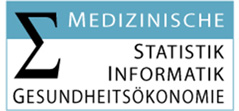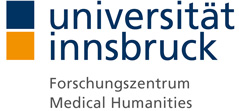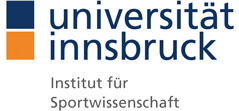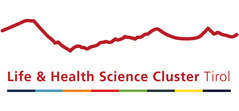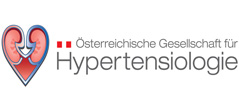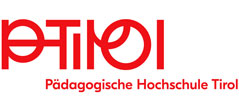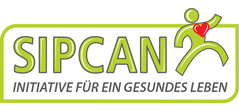From Science 2 School: Sustainably healthy – active & veggy
Survey of the prevalence of vegetarian diets linked to sports & physical exercise
among Austrian pupils, teachers and principals of secondary levels I and II
Join us in the Austria-wide school study!
From Science 2 School is the first study in which a scale of movement patterns are linked to various diets (traditional, current trends) in the school context.
In order to make informed statements, a large number of subjects are needed.
Through an online survey, this Austria-wide school study will be available to all pupils, teachers, and principals of secondary levels I and II. The survey will examine the topics of sports & physical exercise, diet, and health.
Therefore, we would like to kindly invite all pupils, teachers, and principals of secondary levels I and II in Austria to participate!
Be part of it!
In Austria, approximately 2,680 schools operate at secondary level I and/or II with approximately 771,500 pupils and 89,240 teachers/principals.
For this school-study to obtain meaningful results and to be carried out successfully, it is very important that all possible pupils, teachers, and principals participate.
Let’s reach for the stars together and set a milestone: every individual counts!
Be there, join us, and many thanks!
Aim
From Science 2 School will be through the University College of Teacher Education Tyrol (PHT – Pädagogischen Hochschule Tirol) in the area of Sport Didactics/Sport Pedagogy as a didactic research project carried out at the Department of Subject Didactics and Educational Research and Development (expert team: „Physcial Activity, Sports & Health“). This Austria-wide school study is funded by the Tiroler Wissenschaftsförderung (TWF), supported by the Federal Ministry of Education, Science and Research (BMBWF – Bundesministerium für Bildung, Wissenschaft und Forschung, Abteilung I/7 – Schul- und Universitätssport), and approved by all 9 Austrian Federal Education Authorities (Bildungsdirektionen).
This interdisciplinary project (Sports Science, Nutrition Science) is the first study to survey the prevalence of different diets linked to sports & physical exercise in the school context.
(1) Bentham J, et al.; NCD Risk Factor Collabortion (NCD-RisC) (2017) Worldwide trends in body-mass index, underweight, overweight, and obesity from 1975 to 2016: a pooled analysis of 2416 population-based measurement studies in 128·9 million children, adolescents, and adults. The Lancet, 390(10113):2627-2642.
(2) BMG –Bundesministerium für Gesundheit; Griebler R, Winkler P, Bengough T (2016) Österreichischer Kinder- und Jugendgesundheitsbericht. Ergebnisbericht: 67-68, 71, 78-79.
(3) BMG – Bundesministerium für Gesundheit; Ramelow D, Teutsch F, Hofmann F, Felder-Puig R; Ludwig Boltzmann Institut Health Promotion Research (2015) Gesundheit und Gesundheitsverhalten von österreichischen Schülern und Schülerinnen. Ergebnisse des WHO-HBSC-Survey 2014: 7-8, 10-11.
(4) Lehrplan AHS Unterstufe (Sekundarstufe I) (AHS, 2018a). Anlage A: Erster Teil. Allgemeines Bildungsziel, Punkt 5. Bildungsbereiche. Gesundheit und Bewegung: 10; Sechster Teil. Lehrpläne der einzelnen Unterrichtsgegenstände. Pflichtgegenstand Bewegung und Sport. Beiträge zu Bildungsbereichen: 111. www.bmb.gv.at/schulen/unterricht/lp/lp_ahs_unterstufe.html, (9. 1. 2018).
(5) Lehrplan AHS Oberstufe (Sekundarstufe II) (AHS, 2018b). Anlage D: Erster Teil. Allgemeines Bildungsziel, Punkt 5. Bildungsbereiche. Gesundheit und Bewegung: 10; Sechster Teil. Lehrpläne der einzelnen Unterrichtsgegenstände. Pflichtgegenstand Bewegung und Sport. Beiträge zu Bildungsbereichen: 115. www.bmb.gv.at/schulen/unterricht/lp/lp_ahs_oberstufe.html, (9. 1. 2018).
(6) Lehrplan der Neuen Mittelschule (NMS, 2018). Anlage 1: Erster Teil. Allgemeines Bildungsziel, Punkt 5. Bildungsbereiche. Gesundheit und Bewegung: 5; Sechster Teil. Lehrpläne der einzelnen Unterrichtsgegenstände. Pflichtgegenstand Bewegung und Sport. Beiträge zu Bildungsbereichen: 102. www.bmb.gv.at/schulen/unterricht/lp/lp_nms.html, (9. 1. 2018).
Timescale
Publications
Questionnaire
Support
(alphabetical order)
Exercise and eating habits are key factors for good or poor health; their influence together is of crucial importance for the prevention or the development of chronic (so-called non-communicable) diseases.
If valid data can be utilized for school sports in Austria as an achievement of this research project, then it will be very important to think about and plan further improvements for the basic conditions of “health” at Austrian schools.
The present study can help to create a good empirical data basis in order to develop effective measures. The number of overweight and obese children and adolescents, which has been growing for years, is a cause for concern in many parts of the world - including Austria. One of the six global goals of the World Health Organization to be achieved by 2025 is that these numbers must not rise any further. This is precisely why projects that can help improve the eating and exercise behavior of children and adolescents are very important. The present study can help to create a good empirical data basis in order to develop effective measures.
In our society, hypertension, overweight, and diabetes are diseases in three of every four people – lifestyle factors contribute to their creation. With a healthy diet and regular exercise from childhood, these diseases and their consequences on the heart, brain, and blood vessels can usually be prevented.
This school study makes an important contribution to raising awareness of healthy eating and exercise among pupils and parents.
The development of healthy eating and physical activity behaviour in childhood has a significant influence on our long-term health. In addition to evolutionary biological aspects and general imprinting, social influences play a central role in this development process. The school setting plays a special role in this process because children can be reached regardless of their family background. As a workplace and living environment, school is a place where specific framework conditions are created and educators can have a positive effect as confidants.
A great deal can be achieved here, especially in the area of nutrition and physical activity behaviour. With this study, valuable scientific data and insights can be gained in order to design health-promoting processes in an effect-oriented way and to support committed teachers, directorates and higher-level decision-makers.
For long-term health, a shift towards an essentially plant-based diet appears to be of big importance, both for the health of the individual and for global health. Therefore, the impact of a plant-based diet on the development of healthy and chronically ill children is an important goal of one of our research foci. We are interested in sustainable behavioural change in children and adolescents in the field of nutrition and the associated positive effects on child health.
Here, there is an interface of our research in children and adolescents with the Austrian School Study, which will provide important data on lifestyle from nutritional and physical activity behaviour of the large and in future highly promising population group of schoolchildren including their teachers and headmasters. The results will make an important contribution to raising awareness of the preventive potential of lifestyle factors already in childhood and adolescence and thus to be able to promote them in a targeted way.
Cardiovascular diseases together with cerebrovascular diseases were the most common causes of death for the Tyrolean population, about one of three deaths in 2018 was due to these diseases (Statistics Austria). Adjusting one’s lifestyle can prevent great suffering and enormous costs for the health system. We can sense the great potential of nutrition in the prevention of so-called non-communicable diseases. For example, when studying the Adventist Health Study II: Omnivores suffer from type 2 diabetes mellitus almost twice as often as people who eat a purely plant-based diet. Physical activity and exercise also play an important role in the prevention of fatal diseases, but also for our mental health. Therefore, preventive measures should start in childhood. Valid data is essential for this. The study “Sustainably healthy - active & veggy” can make a priceless contribution here.
Diet and exercise affect the cardiovascular system, metabolism, musculoskeletal system and much more and are undoubtedly a priority for the prevention of diseases that have become endemic today.
This also applies to the treatment of diseases, but the following still applies: “Prevention is better than reversal”. And prevention begins in the womb.
There are studies that have already shown the relationship between diet and exercise and the diseases mentioned during pregnancy. Well structured studies of childhood on this topic-complex are rare. Therefore, the study “Sustainably healthy - active & veggie” is absolutely welcome.
Team
Study Coordinator

IT-Coordinator

Former research associates












